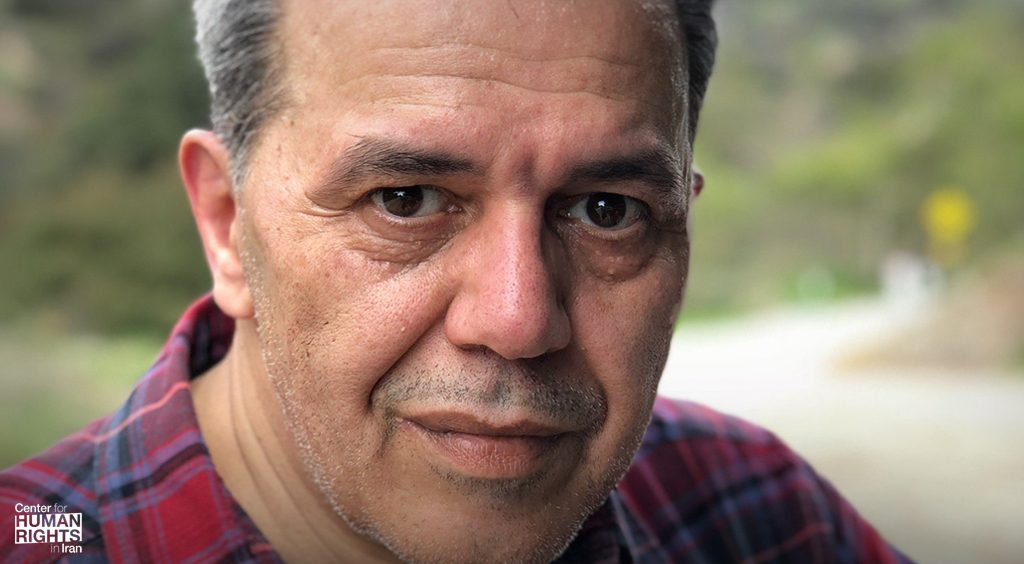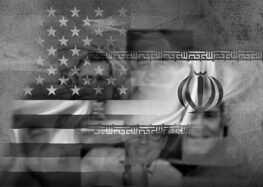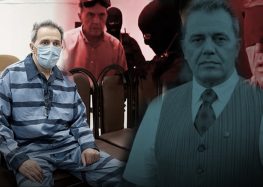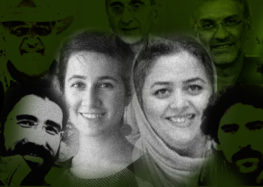Abducted German-Iranian Denied Choice of Attorney, Whereabouts Still Unknown
 Jamshid Sharmahd Assigned Lawyer Who “Defended” Executed Dissident Ruhollah Zam
Jamshid Sharmahd Assigned Lawyer Who “Defended” Executed Dissident Ruhollah Zam
The exact whereabouts of Jamshid Sharmahd, the German-Iranian dissident who was arrested and apparently abducted by Iranian intelligence agents in July 2020, is still unknown, according to his daughter, and he has been issued the same court-appointed lawyer who “defended” the recently executed dissident Ruhollah Zam.
The arrest of Sharmahd, who was director of a monarchist radio station known as Tondar, was first announced by Iran’s Intelligence Minister Mahmoud Alavi on August 1, 2020. Media outlets close to Iran’s security establishment also published clipsshowing Sharmahd at unknown locations “confessing” to acts against the Islamic Republic.
Since then Iranian authorities have not detailed how the 65-year-old political activist was abducted.
Speaking to the Center for Human Rights in Iran (CHRI) from Germany, his daughter, Gazelle Sharmahd, said “We still cannot say for sure whether my father is in Tehran, or somewhere else in Iran.”
Gazelle Sharmahd said she had spoken with her father on the phone only on four occasions in the past four months. She said her father always says he is physically well and has no problems but will not talk about the status of his case.
The Iranian judiciary’s appointment, however, of attorney Dabir Daryabeigi to “defend” Sharmahd—the same attorney who had been appointed to represent Ruhollah Zam, a dissident journalist abducted from Iraq and executed in mid-December despite denials of due process in the case—has caused the family great concern.
In cases involving national security charges—which the authorities typically use against political opponents, activists, dissidents and human rights defenders—defendants are assigned state-appointed attorneys.
Authorities Deny the Family’s Choice of Attorney and Refuse Consular Visits
“As soon as I learned Daryabeigi had been appointed as my father’s lawyer, the only thing I could do was to urge my father not to cooperate with any lawyer appointed by the judicial authorities,” Gazelle Sharmahd told CHRI.
She added that the authorities had not allowed the attorney chosen by the family, nor any German consular representative, to visit her father.
“We were able to find an independent lawyer to follow up my father’s case,” she said. “When he went to Evin Prison to make inquiries, they told him no such person was being held there and there was no case file on him.”
Then in late November, during a phone conversation, Jamshid Sharmahd told his daughter that originally, he had not been at Evin Prison but had now been moved there, after which the authorities did inform the family lawyer that his client was indeed in Evin but could not have visitors until interrogations are completed.
Daughter Voices Concern Over Forced “Confessions”
“The only things we know about my father’s case are the forced confessions that aired on Iranian state television and published in other media outlets tied to the Islamic Republic,” Gazelle Sharmahd said.
The Iranian authorities have a long and documented history of extracting false forced “confessions” under physical and/or psychological torture, airing the confessions on state TV, and then using these statements to convict.
In one clip, released on August 1, 2020, Jamshid Sharmahd, wearing a blindfold, refers to the April 2008 bomb explosion at a mosque in Shiraz that killed 14 people and injured more than 200.
In the clip, he says: “They contacted me before they went to the mosque… They were in a good position and needed explosives and we provided them with explosive material.”
The clip is mixed with images from the bomb explosion’s aftermath, intended to link the tragedy directly to Sharmahd, who is also accused of plotting other bombings foiled by the security forces.
Gazelle Sharmahd said she was concerned by the pressure put on her father to make false statements.
“When I asked my father why he had lied on television about assisting the bombers, he said the confessions had been made in the past and at this juncture the authorities want to help him,” she said.
“Besides being worried about his condition in detention, my father was abducted by Iranian agents and we demand an explanation from the Islamic Republic authorities.”
She said her father was on his way to India when he was forced to have a layover in Dubai for a few days because of the COVID-19 pandemic.
Dual National Last Heard from In Dubai, GPS Signal Indicates Travel to Oman
“My father was on a business trip and when he told my mother he was in the United Arab Emirates, she became worried. We were following his movements through a GPS device and suddenly he disappeared for two days. According to the GPS, my father had gone to Oman by land.”
She added: “It was then when Iran announced my father’s arrest in an operation carried out in a foreign country… Before we had a chance to talk to the international media about our father’s disappearance in Oman, Iranian state media published conflicting reports that Jamshid Sharmahd had been arrested in Tajikistan, Iraq or Turkey…
“We were unable to establish contacts with the UAE and Oman embassies (in Germany) to get an explanation from them. And the Iranian embassy here has told us they have cc’d UAE and Omani authorities in their email inquiries, which does not help us at all.”
On the other hand, there is regular contact between the family and German authorities who are trying to help their citizen but are not providing details, Gazelle Sharmahd said.
“This inhuman behavior is a violation of human rights and we call on all international organizations to stop this inhuman treatment of dual nationals in Iran,” she continued.
Jamshid Sharmahd migrated to Germany in 1983 and eventually gained citizenship. He established an engineering company, designing software for the electronics and auto industries.
In 2004, Sharmahd moved to the US and in 2007 launched the Tondar radio station as the voice of the monarchist organization, Anjoman-e Padeshahi-e Iran, or Kingdom Assembly of Iran.
The scenarios built around Sharmahd by the Iranian authorities, especially in connection with the bombing in Shiraz, raises the possibility that he could receive a heavy punishment.
The founder of the Kingdom Assembly of Iran, Foroud Fouladvand, has not been heard from since he went missing in Turkey with two other Iranian dual nationals in January 2007. It is feared they were abducted by Iranian security agents.






